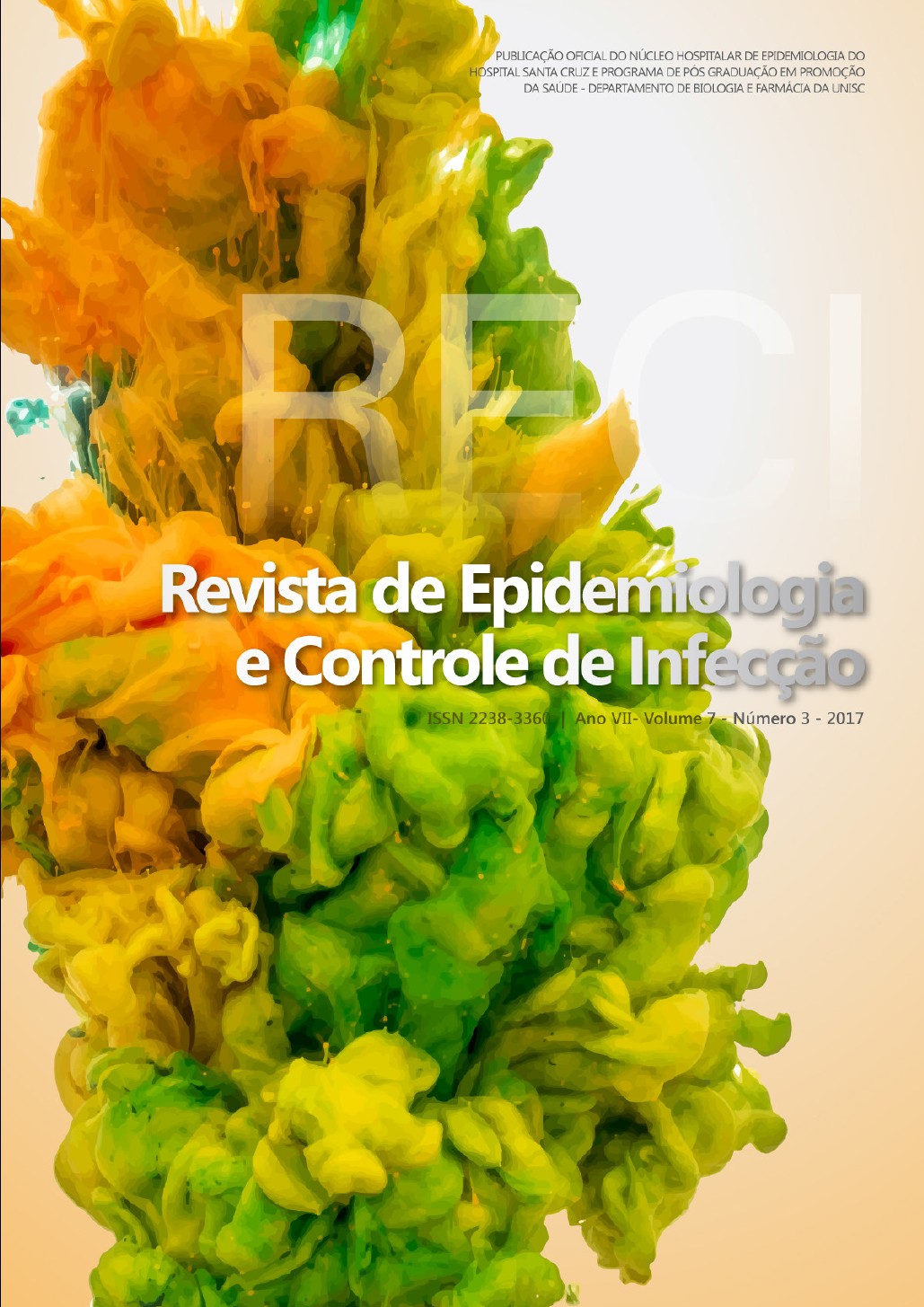Epidemiologic profile of the cases of syphilis in Americana - SP from 2005 to 2015
DOI:
https://doi.org/10.17058/reci.v7i3.8583Abstract
Background and Objectives: Syphilis, an infection with a high incidence, is transmitted by Treponema pallidum, a parasite that diffuses hematologically after crossing the injured tissue. Although the increased incidence of syphilis cases in Brazil, there is little discussion about specific regional data and the causes of this augment. The present study aims to evaluate the epidemiological data of syphilis cases in the city of Americana, SP from 2005 to 2015, as well as to explore facts that may justify the alterations. Methods: In the present study, data were obtained from the Health Surveillance Secretariat, of the Health Ministry, and Epidemiological Surveillance of Americana, SP. The data on syphilis cases were evaluated from 2005 to 2015. Results: A recurrent increase in syphilis cases was found in Americana, SP, from the year of 2012. This increase in the number of cases reported was more intense in the male population. The increase in the number of cases of congenital syphilis and gestational syphilis proportionately accompanies the increase in cases of syphilis reported in adults. It was also observed that the sexual partners of pregnant women with syphilis, ignored or refused to perform syphilis treatment offered by the health unit, these being 81% of the cases. Conclusion: The augment in syphilis cases from 2012 in the city of Americana, SP, was confirmed by the comparative data analyzes and may be related to the necessity of compulsory notification. There was no reduction in the number of cases of this disease after this year. The increase in epidemiological coefficients in recent years in the city reinforces the need of actions to control this aggravation.Downloads
Downloads
Published
How to Cite
Issue
Section
License
The author must state that the paper is original (has not been published previously), not infringing any copyright or other ownership right involving third parties. Once the paper is submitted, the Journal reserves the right to make normative changes, such as spelling and grammar, in order to maintain the language standard, but respecting the author’s style. The published papers become ownership of RECI, considering that all the opinions expressed by the authors are their responsibility. Because we are an open access journal, we allow free use of articles in educational and scientific applications provided the source is cited under the Creative Commons CC-BY license.


